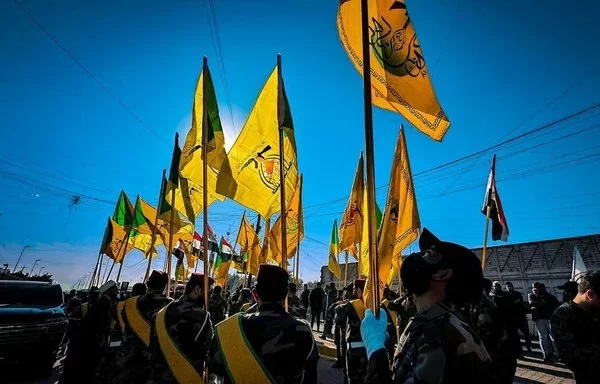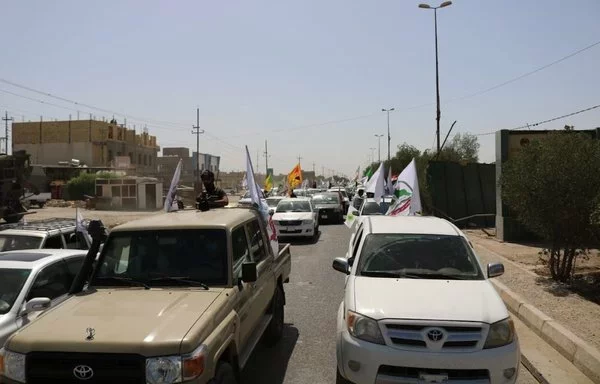Security
Iran-aligned factions seek to expand regional conflict
Iran's proxies have indicated they are willing to fight alongside Lebanese Hizbullah, in a move that threatens to plunge the region into war.

By Anas al-Bar |
The Iranian regime is seeking to plunge the troubled Middle East into wider conflict, analysts warned, after Tehran's proxies in Iraq announced their readiness to fight alongside Lebanese Hizbullah and escalate their attacks.
With Kataib Hizbullah at the fore, Iran-backed Iraqi militias recently expressed their determination to join the conflict on the ground alongside Lebanese Hizbullah, and to supply the Iran-backed party with weapons and fighters.
Asaib Ahl al-Haq leader Qais al-Khazaali also threatened to carry out attacks in the wider region and inside Iraq.
These positions reflect what Iran refers to as the "unity of the arenas" doctrine, which seeks to promote the illusion that Iran and its proxies are on the same page and "that no one can abandon the other," political analyst Abdul Qader al-Nayel told al-Fassel affiliate-outlet Pishtaz.

'Congruity of interests'
Iran-aligned militias have a "congruity of interests," al-Nayel said, pointing to "the continued use of the Iraqi-Syrian border by Iran and its militias as a conduit for the smuggling of weapons and fighters to Lebanese Hizbullah."
With their stated positions, Iran-aligned Iraqi militias are affirming their absolute loyalty to Iran's malicious agenda, which aims to expand the fronts of regional conflicts and start wars, al-Nayel said.
"Any provocative action or move would only harm -- politically, militarily and economically -- Iraqis and other peoples of the region," he said.
The militias have embarrassed the Iraqi government, which had pledged to rein them in, he said, and have tried to undermine Iraq's decision-making process.
"These groups still claim to be part of the state's military apparatus, but at the same time they obey only Iran's orders," he said.
With the threat of escalation looming, the Islamic Revolutionary Guard Corps (IRGC) and Iran-aligned Iraqi militias met in Baghdad to discuss support for Lebanese Hizbullah, Asharq al-Awsat reported June 25.
This could potentially take the form of weapons, missiles, drones or fighters.
Militia leaders in Lebanon
Some Iraqi militia leaders are present on the Lebanese front already, among them Harakat al-Nujaba leader Akram al-Kaabi, political analyst Tariq al-Shammari told Pishtaz.
Three militias known for their strong loyalty to Iran -- Kataib Hizbullah, Sayed al-Shuhada and Harakat al-Nujaba -- will be "ready" for any military role assigned to them by the Iranian regime, he said.
Al-Shammari noted that these militias submit only to Iranian will, act against the Iraqi national interest and operate outside state control.
They support a "cross-border" project that achieves the aspirations and plans of the Iranian regime, "which repeatedly seeks to plunge countries in the region into crises and tear them apart," he added.